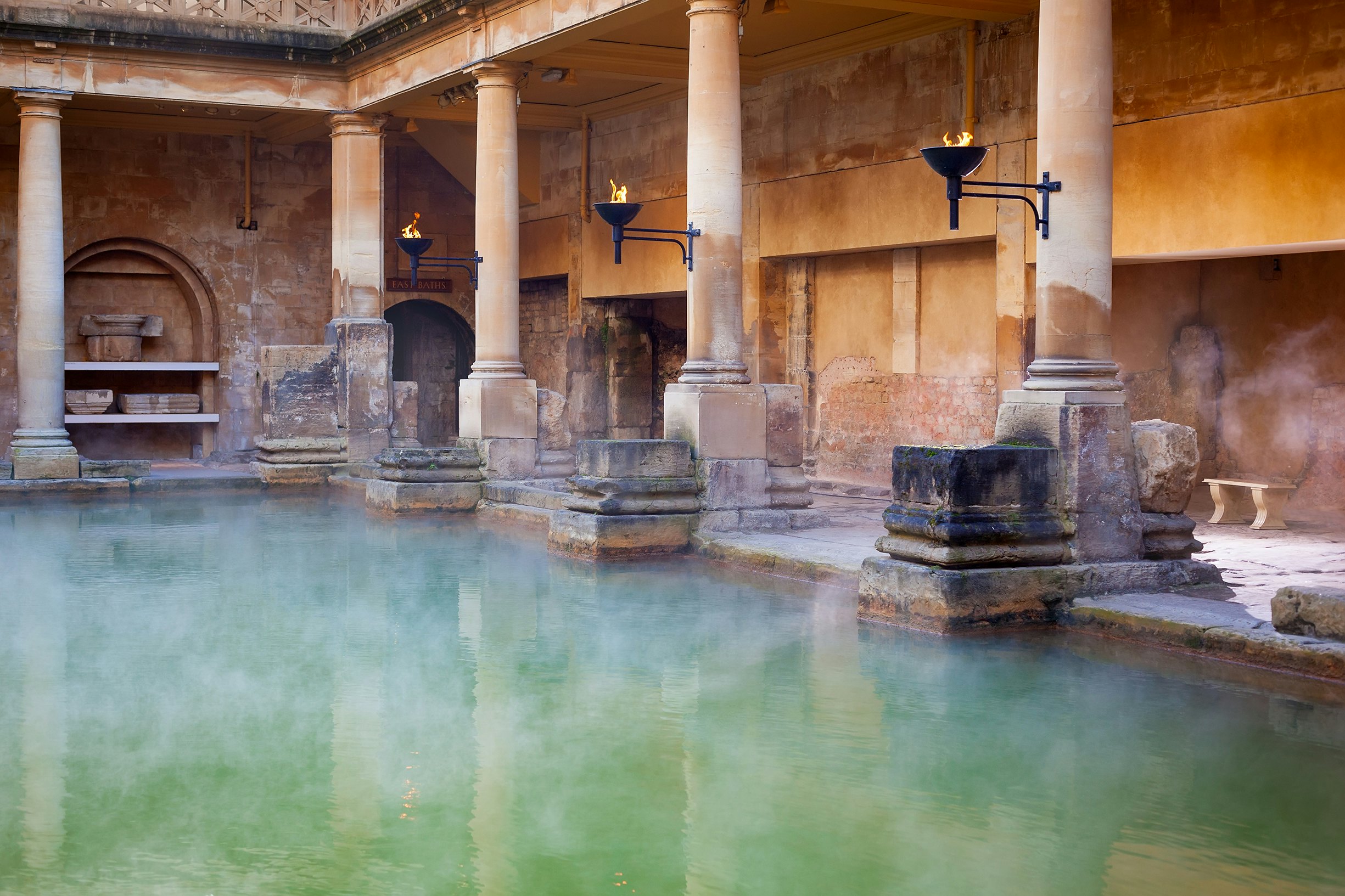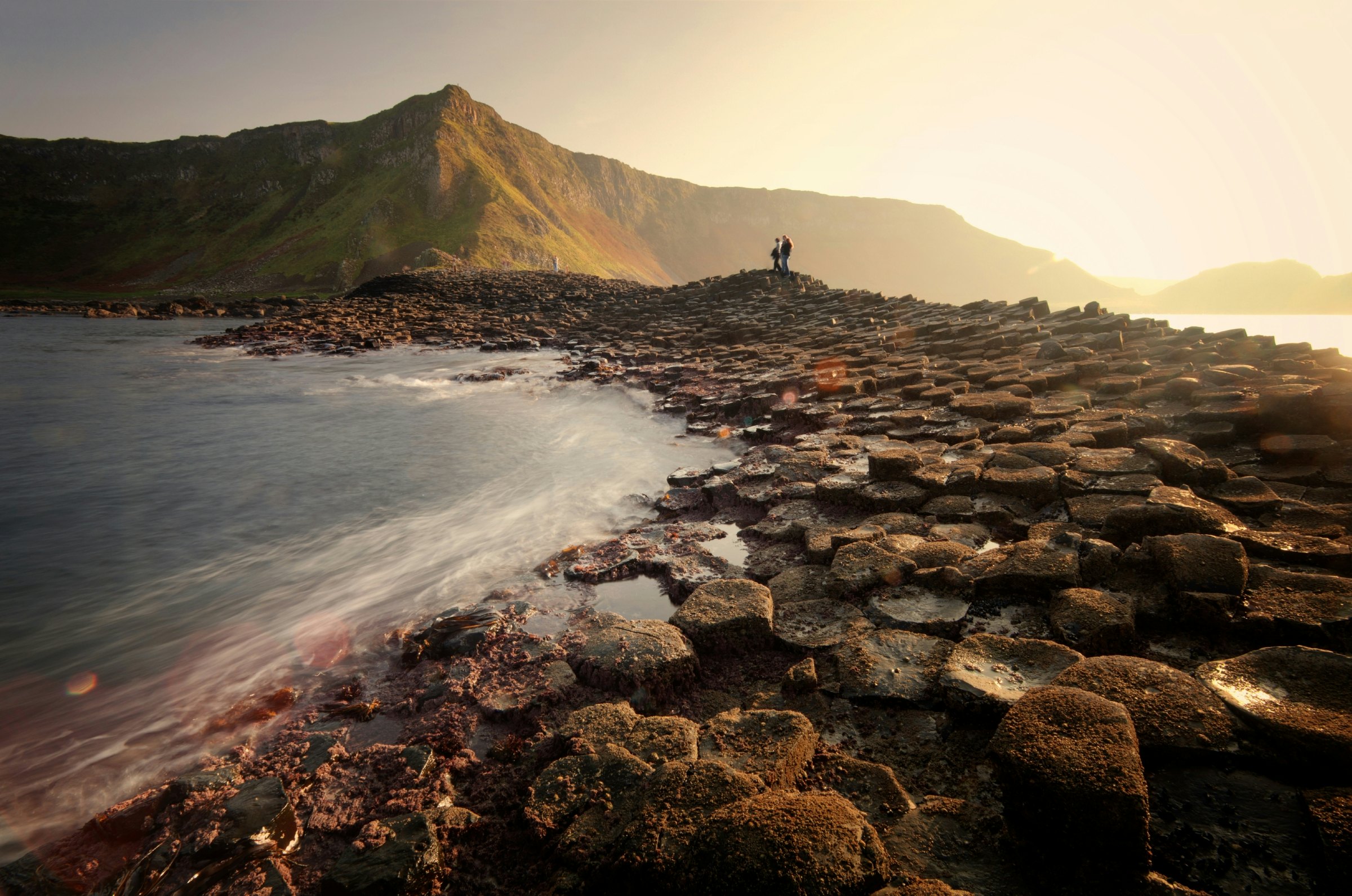
Jan 22, 20267 min read
The best time to visit Scotland for festivals, stunning landscapes and winter nights
Jan 18, 2022 • 10 min read

Stonehenge is England's most iconic ancient site with an excellent visitor centre to learn more © William Toti / 500px
The United Kingdom may be relatively compact, but it has a wealth of travel experiences that you've probably dreamed of since childhood.
Buckingham Palace? Hadrian's Wall? Stonehenge? They're all here. Of course there are dozens of incredible places to visit across Great Britain, Northern Ireland and the Channel Islands, but we give you the 10 best UK experiences to put on your itinerary, especially if it's your first time here.
Mysterious and compelling, Stonehenge is England's most iconic ancient site. People have been drawn to this myth-laden ring of boulders for more than 5000 years, and we still don't know quite why it was built. Just what were ancient Britons playing at when they hauled these giant stones into place all those millennia ago? Stonehenge, on Salisbury Plain near Amesbury, is a monumental, undeniably mind-boggling achievement.
Built in stages between around 4500 BC and 1500 BC, Stonehenge’s massive stones (some weighing 25 tonnes) were probably erected using a system of sledges, rollers, pivots and pulleys; some were transported here from the Preseli Hills in Wales, 140 miles away. Standing in the shadow of the stones, feeling their power and presence, it’s impossible not to let your imagination run wild, wondering not only how, but why?
If time allows continue on to nearby Avebury Stone Circle in Wiltshire, another truly impressive site but with a much smaller interpretative museum. And you can actually walk right up and touch the stones here.

In a country famous for stunning scenery, the Isle of Skye takes top prize. It's the largest of the Inner Hebrides islands at 50 miles long, and home to some of Scotland's most iconic landscapes. From the craggy peaks of the Cuillins and the bizarre pinnacles of the Old Man of Storr and the Quiraing to the spectacular sea cliffs of Neist Point, there's a photo opportunity awaiting you at almost every turn.
Skye is one of Scotland’s most popular destinations along with Edinburgh and Loch Ness. Unfortunately prior to the COVID-19 pandemic, some part of Skye were experiencing the impact of overcrowding particularly social media fuelled hotspots such as the Quiraing, the Old Man of Storr and the Fairy Pools. Things have changed for the moment, so it’s a good time to be visiting.
Of course it is always possible to find peace and quiet on Skye in the island’s quieter corners such as Sleat, Elgol or Waternish, for example. Walking is a popular activity, so bring your hiking boots – but be prepared for changeable weather.
While the stunning scenery is the main attraction, when the mist closes in there are plenty of castles, crofting museums and cosy pubs and restaurants to snuggle in, plus art galleries and craft studios to explore.
Get more travel inspiration, tips and exclusive offers sent straight to your inbox with our weekly newsletter.

And 2000 years ago, when Britain was under Roman rule, a sumptuous bath complex was built at the site known as Aquae Sulis (present-day Bath), taking advantage of the area’s geothermal hot springs, which warm the underground water to 46°C (115°F). Though now swallowed up by the Georgian city of Bath, this is one of the best-preserved Roman bathhouses in the world, and gives a fascinating glimpse into their everyday lives (and fastidious ablution habits).
Thanks to advances in technology, multimedia projections help bring the bustle of this ancient bath house to life today. The only disappointment when visiting this incredible site is that you're no longer permitted to take a dip. But you can get pretty close to a bona fide Roman bathing experience at the Thermae Bath Spa nearby, complete with its postcard-worthy panoramic rooftop pool.
Bath is also a must-visit for television period drama lovers and literature fans with a host of walking tours of perfect Regency avenues and views that summon yesteryear.

The descent down from the cliffs to the strange rocks of the Giant’s Causeway in Northern Ireland feels at once timeless – the scene has remained the same for countless centuries – and yet the moody skies, the light and the temperament of the sea are constantly changing. Uneven stacks of hexagonal basalt columns stand in neat clusters along the water’s edge, emerging from the shore like tightly packed tower blocks in a city skyline.
Northern Ireland’s only Unesco World Heritage site is shrouded in a sense of magic, myth and natural wonder. Scientists put the formation of the rocks down to volcanic activity some 60 million years ago: as the lava flow cooled and hardened it contracted, creating a honeycomb pattern.
You'll learn more about the geology and the mythology of this place at the excellent visitor centre beautifully designed into the landscape. Game of Thrones fans will also be pleased to see a map of filming sites in nearby locations.

London is one of the best places in the world to catch a theater performance – so whatever your budget, make sure you get to a show. Restricted view or standing room only tickets can go for as little as £5 to £10.
The pandemic saw theaters close for well over a year in the UK, but now that they're back there is a palpable air of excitement and gratitude along with the glitz and stage lights. The joy among audiences and theater staff makes every night feel as special as opening night right now.
If you're keen to see famous names, you'll need to get organised and prebook your tickets before you arrive. Screen stars are often seen treading the boards at theaters from the prominent National Theatre or the Old Vic to more experimental spaces like Donmar Warehouse and the Almeida. The West End centres around Shaftesbury Ave, Charing Cross and Drury Lane and the surrounding area, with a total of 38 theathers from the Shaftesbury and the Theatre Royal to Noel Coward Theatre and the Garrick Theatre to name just a few. If it's new trailblazing works you're after, over more established shows, head further afield to the Bridge Theatre, the Royal Court or the Arcola.
But of course the UK's outstanding theater is not just concentrated in London. If Shakespeare is more your thing, you will love an Elizabethan-style experience at Shakespeare's Globe in London, better yet you can see performances by the Royal Shakespeare Company in the bard's birthplace Stratford-upon-Avon itself. Other top theater companies are found in Bath, Sheffield, and Manchester. And have we mentioned Edinburgh yet? The city is soaked with opportunities to catch performances across its many festivals.

Some museums are travel destinations in themselves. The British Museum – the first-ever public national museum – is the envy of the world, with good reason in some cases, considering the many treasures obtained under questionable circumstances in colonial times.
This miraculous museum started life as a humble cabinet of curiosities, assembled by 18th-century physician and hot-chocolate inventor, Sir Hans Sloane. As a condition of bequeathing his treasures to the nation, he ordered that they be open for free to "all studious and curious persons", a tradition that persists to this day.
Visitors today are transported on a whirlwind world tour of human creativity. If human beings have made it, somewhere in the world, there’s a chance you’ll find an example among the display cases. There’s far too much to take in on one trip; if you only have a day, make a beeline for the Egyptian treasures, the Parthenon Marbles and quirky British antiquities such as the Sutton Hoo haul and the Lewis chessmen.

Hot on the heels of Bath’s namesake thermal baths is another mighty Roman legacy – an enormous defensive wall stretching 73 miles across Britain. This phenomenal feat of engineering was built under Roman emperor Hadrian between AD 122 and 128 to keep out the Picts. Rising to a height of up to 15ft, with a width of almost 10ft, it took 15,000 men six years to construct it from local whinstone (dolerite). Only 10% survives today, but what does makes an unforgettable impression.
Along the wall were 80 mile-castle forts, with observation turrets between them. Larger forts were built in the south, with 16 more lying astride the wall, which you can visit today. Staggering remains that serve as reminders of the Romans’ advancements include the hospital at Housesteads Fort, ventilated granaries and barracks, as well as flushable communal latrines.
Exploring sections of the wall is easy thanks to good rail and road access (including buses), but if you’re up for an adventure, you can complete the national Hadrian’s Wall Path walking trail along its length in about a week.

Fewer and fewer people in Britain start Sunday with a trip to church, but the roast lunch is still a lock. For visitors, it’s a must-do experience. It doesn’t matter whether you’re in a centuries-old, windowless pub in London or at a large country inn with tables sprawling over a lawn, you’ll be among friends and families laughing, drinking beer and tucking into plates of hot sliced roast beef or pork, Yorkshire pudding, roasted potatoes and assorted veggies, all slathered in gravy.
Warming, filling and indulgent, this is comfort food par excellence. But more than that, it’s a reassuring experience, a weekly ritual where the nation forgets time, staves off the start of the working week and lives in the moment. So committed to pub life, the UK reopened pubs before schools during the height of the COVID-19 pandemic. Grab a plate, and partake in a tradition that everyone can agree on.

Call it hiking or rambling – but most often simply walking – England is the perfect place to explore on two feet, thanks to its compact nature and protected network of "rights of way". You can stroll the narrow streets and hidden alleyways of the nation’s famous historic towns, then head for a patch of open countryside or one of England's network of national parks: the wild tors and heaths of Dartmoor make a fine introduction.
Windermere, England’s largest natural lake – 10.5 miles from Ambleside to Newby Bridge – is at the heart of the Lake District and its most popular destination. People come in search of the scenic splendour and bucolic experiences that inspired Wordsworth, Coleridge and the English Romantics.
Most activity is focused on the twin towns of Windermere (on a hill overlooking the lake) and busy Bowness-on-Windermere, which is home to the boat docks, a cluster of shops and the World of Beatrix Potter, which brings to life the most famous creations of the writer who dedicated her life to the preservation of the Lake District.

There’s more to Wales than sheep, drizzly valleys and place names that seem impossible to pronounce for outsiders. If you haven’t been to the Pembrokeshire Coast National Park in the country’s "wild west", you are missing a trick. This ravishing stretch of cliff-flanked coves, thrashing seas, wildflower-freckled moors and hedge-lined tracks leading to one-pub villages is a great escape.
You’ve come for the beaches? Wise choice, you’re in for a treat. Tenby in the south offers a classic dose of ice-cream-licking, bucket-and-spade fun. But the further west you head, the wilder it gets, with the likes of crescent-shaped Barafundle Bay, reached on foot through the dunes, surf-hammered Freshwater, and tucked-away Marloes with its high sea cliffs, shipwreck and boats heading over to puffin island, Skomer.
A terrific base for beach-hopping and coastal-hiking is St Davids. Britain’s smallest city is charm personified, with a whopping medieval cathedral, lanes staggering down to the sea, and a couple of highly stylish, architect-designed hotels, including art-slung former windmill Twr Y Felin and one-time Victorian convent Penrhiw.
Break up drives by striking out on the 186-mile Pembrokeshire Coast Path, which dips and rises over kissing gates and windy clifftops to smuggler’s coves, wooded hollows where brooks burble, and Neolithic burial chambers. To up the adventure, go coasteering or turn your focus inland to hike the Preseli Mountains, a windswept range of rocky outcrops, low-lying peaks capped with prehistoric standing stones, and moorland flecked with gorse and heather.
You might also like:
The 10 best wild swimming spots in the UK
The United Kingdom's 10 best food experiences
Do you need a visa to go to the United Kingdom?